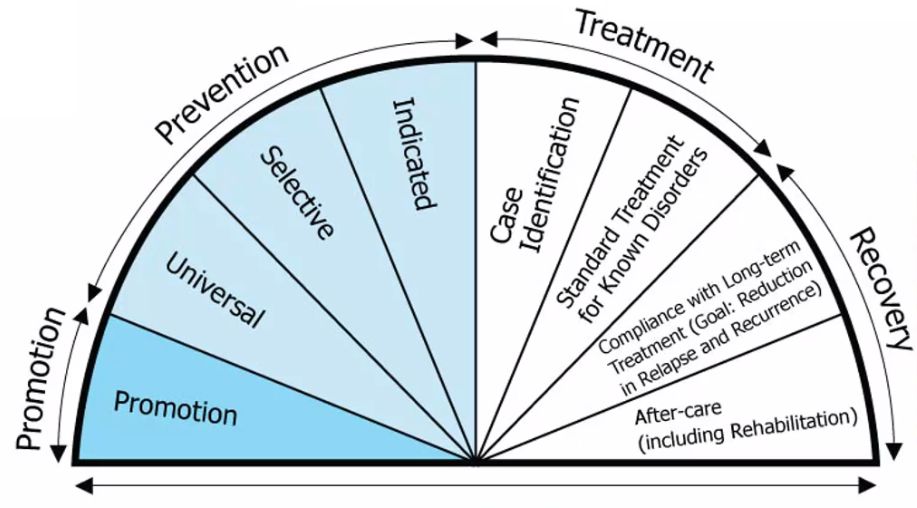Mercer Council offers a number of evidence-based prevention and intervention programs to the community.
About Our Approach
All of our programs fall within the Continuum of Care model and work in the areas of Promotion, Prevention, Treatment, or Recovery.

The framework places prevention in a graded continuum of care that distinguishes between prevention, treatment, and maintenance, and shows their interrelation. It also distinguishes between three levels of prevention services according to the risk levels of the target populations. This framework has been visibly adopted in prevention policy language, which describes the range of interventions and strategies which support healthy lifestyles and choices. Click to learn more about each of the areas of prevention work.
Health promotion interventions are usually targeted to the general public or to a whole population. These are often programs in schools, community centers, or other community-based settings that promote emotional and social competence through activities emphasizing self-control and problem solving.
Our Community Coalitions work in this area, along with some members of our Administrative Leadership team who promote education on social media.
The three areas of prevention include programming to Universal, Selective, and Indicated populations.
- Universal prevention programs are targeted to the general public or to a general population that hasn’t been identified on the basis of individual risk.
- Selective prevention programs are targeted to individuals or populations who are at a higher risk of experiencing mental and behavioral health disorders
- Indicated prevention programs are targeted to high-risk individuals that are identified as having detectable signs or symptoms of mental, emotional and/or behavioral health disorders.
Our Prevention Education programs, trainings and workshops fall into this category, along with much of the work of our School-Based Services provided by the ASYSST program.
Treatment services are typically for those diagnosed with a substance use or other behavioral health disorder. This sector includes case identification and standard forms of treatment.
Our Clinical Services, which include the short-term counseling provided by our Metro Employee Assistance Services, fall into this category. The short-term counseling that is provided to students and families through ASYSST School-Based Services fall into this category as well.
These services support individuals’ abilities to live productive lives in the community and can often help with abstinence. This is a process of change through which individuals improve their health and wellness, live self-directed life, and strive to reach their full potential.
Our Opioid Overdose Recovery Program works in this area by providing support to affected individuals through weekly recovery meetings.